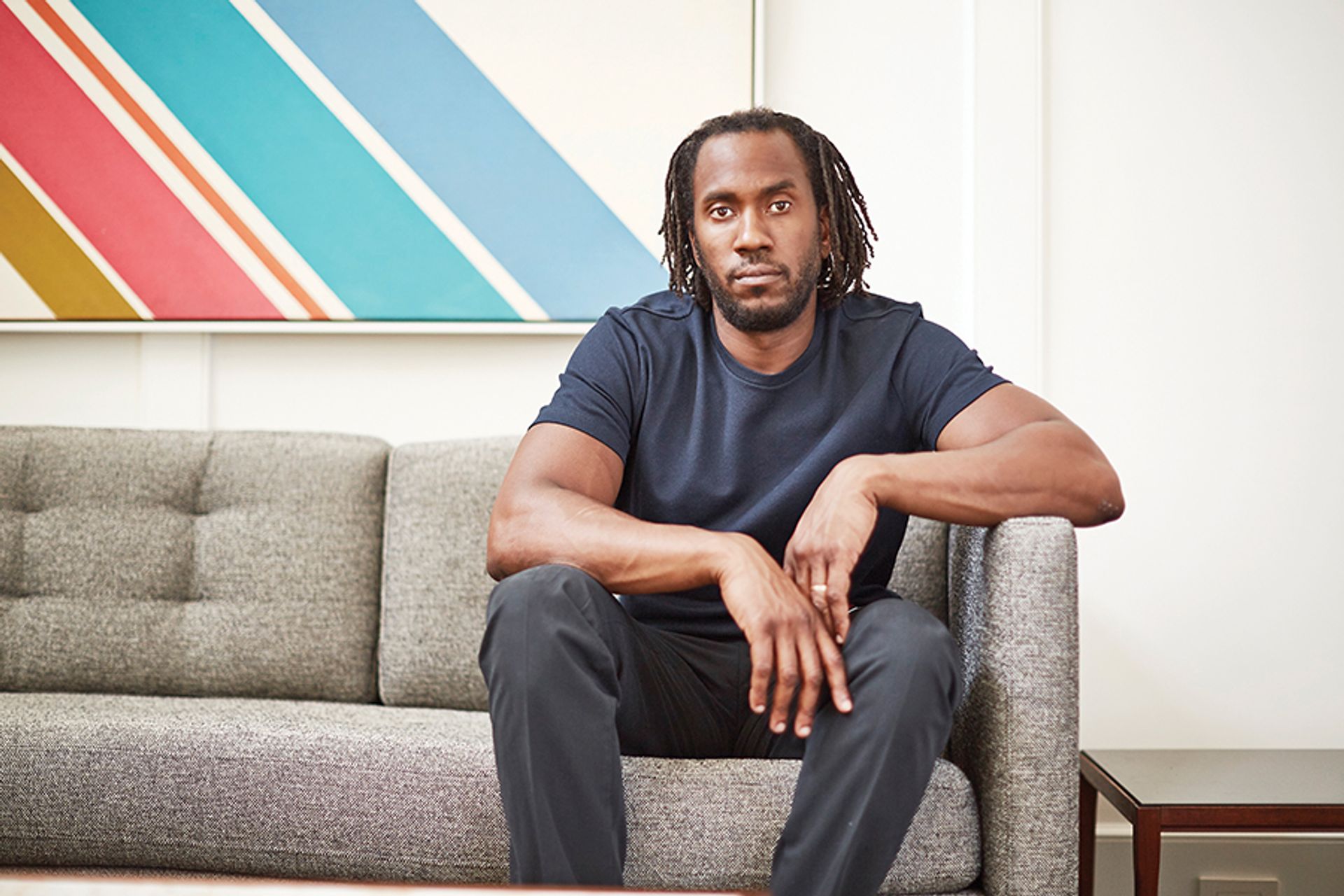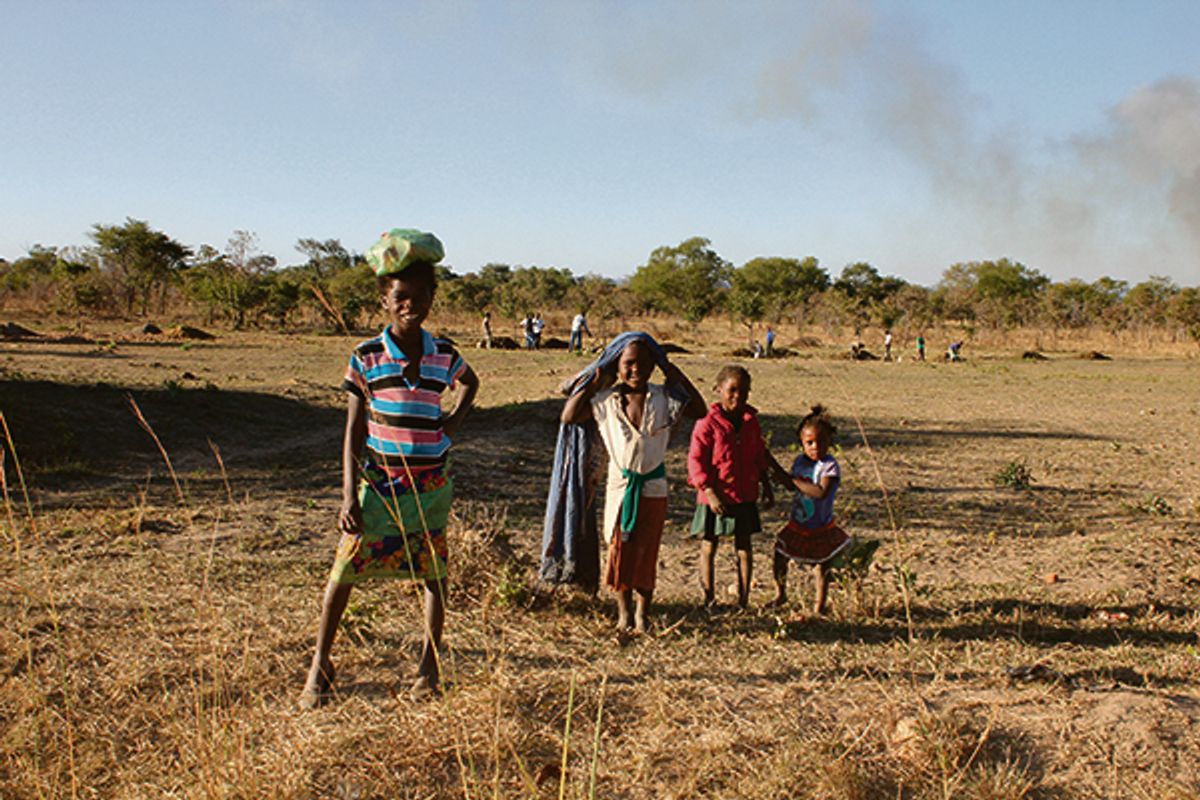The Brooklyn-based artist Rashid Johnson is working with the non-profit 14+ Foundation to build a primary school in rural Africa that will offer daily art classes and workshops led by visiting artists.
The Mwabwindo School in Zambia, designed by Selldorf Architects in New York who are working pro bono, is due to open to 200 children next year. Inspired by the tall, singular trees growing on the surrounding savannah, the complex of mud-brick classrooms will be covered by a corrugated metal roof canopy.
“Sustainability is a topic that keeps resonating in the contemporary world and in many of our projects,” says Annabelle Selldorf. “Windmills and solar panels will provide power at the Mwabwindo School, and rainwater can be collected on the roof.” The project also includes a building to house eight teachers, a community vegetable garden and playing fields.
The Basel-based architects Christ & Gantenbein are designing the wooden tables and stools for the school. Prototypes are on show at Design Miami this week, but the actual pieces, which can be assembled without glue or hardware, will be fabricated in Zambia by local craftsmen. Funding for the school building, which is expected to cost more that $1.25m, is almost entirely privately sourced. The foundation also provides the students with books, uniforms and daily meals.

Rashid Johnson Eric Vogel
Johnson got involved in the project after a studio visit from the collector and construction business owner Joseph Mizzi, who established the foundation with the stylist Nchimunya Wulf in 2012. “I was excited to hear about a collector doing something as thoughtful as what Joe was doing, so I agreed to contribute financially,” the artist says. Since then, Johnson and his family have been involved in numerous other ways. His mother, Cheryl Johnson-Odim, the academic and provost of Dominican University, Illinois, is now an adviser to the foundation’s board and the Mwabwindo School.
Johnson will also work with local children to paint a mural at the school. “It’s going to use language and colour in a way that I hope speaks to the landscape,” he says. The painting will do more than beautify the school, however, since the artist believes the arts play a “significant role” in any successful education. “It’s naive to imagine that art and arts education isn’t a substantial part of how people learn—to engage critical thought, problem solving and decision making,” Johnson says. “These are the goals that we should be more focused on with early education, as opposed to a lot of standardised testing that people have committed themselves to thinking is the way we should teach children.”
Mwabwindo School is the second educational facility that the 14+ Foundation has built. The first, Chipakata Children’s Academy, also in Zambia, opened in January 2015 with 110 students; it has now expanded to include 240 students. Nineteen of them are being enrolled to secondary boarding schools next month, while four students are going on to study clinical medicine and nursing. The New York-based artists Duhirwe Rushemeza and Dana Marie Ingraham have held workshops in Chipakata, while the foundation recently collaborated with the Brooklyn-based arts collective, Bruce High Quality Foundation, on a printmaking initiative. The school also supports community agricultural projects, which produces income for almost 40 local women.
Mizzi, the president of Sciame construction company that specialises in technically sophisticated architectural projects, says it was a “no-brainer” to build a school in Mwabwindo village. “The nearest governmental schools are around four miles away and only provide half-day school sessions to each student, due to overcrowding,” he says.
Mizzi believes art can only enrich the project. “Hopefully Rashid visiting the school and creating a permanent work of art with our students will be a life changing experience,” he says. “Additionally, because of geographical and economic constraints, our community does not get to visit art museums or galleries. With this project, Rashid is bringing his work to the community for all to experience and live with in perpetuity.”
And what of the wealthy art world’s responsibility to provide for those facing poverty elsewhere in the world? “We all need to take responsibility because the needs exist and are real,” Mizzi says. “I hope projects such as ours continue to remain on everyone’s radar, particularly those with the resources to make meaningful impacts. This list of ways to help is endless including volunteering.”
The Mwabwindo School has been awarded the 2017 Panerai Design Miami/ Visionary Award. Anyone wishing to contribute or volunteer can email jmizzi@14plusfoundation.org.


